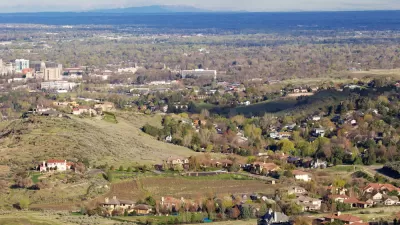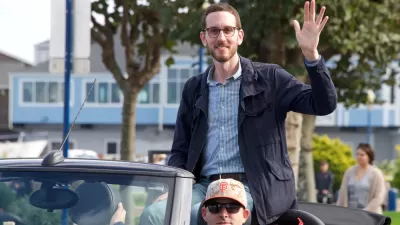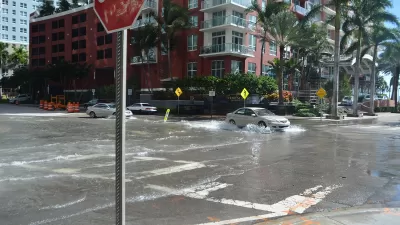That question may seem like a contradiction, but it couldn't be more pertinent to communities and land use—existing codes and policies generate change by shaping investment.
Scott Doyon posted a commentary this week on the subject of change and how it often meets with knee-jerk opposition. Doyon argues that we have to accept that we are all responsible for change before we can act to make communities better.
Recently, I have begun presentations by asking, "Are you getting the change you want from the status quo?" That question may seem like a contradiction, but it couldn't be more pertinent to communities and land use.
All communities have land use regulations and policies. When you pile them up, they are usually several inches thick for a single community. They are the status quo, and yet they constantly generate change. Zoning and street policies shape the development of buildings, roads, and public spaces. The physical form of our communities—now and in the future—come from those investments.
So here are more questions to consider: Is your community walkable or not? Do major parts of it lack unique character? Is your community failing, lately, to attract talented and educated workers or the employers that hire such people? All these problems could be traced to land use regulations.
FULL STORY: Are you getting the change you want from the status quo?

Planetizen Federal Action Tracker
A weekly monitor of how Trump’s orders and actions are impacting planners and planning in America.

Maui's Vacation Rental Debate Turns Ugly
Verbal attacks, misinformation campaigns and fistfights plague a high-stakes debate to convert thousands of vacation rentals into long-term housing.

San Francisco Suspends Traffic Calming Amidst Record Deaths
Citing “a challenging fiscal landscape,” the city will cease the program on the heels of 42 traffic deaths, including 24 pedestrians.

Amtrak Rolls Out New Orleans to Alabama “Mardi Gras” Train
The new service will operate morning and evening departures between Mobile and New Orleans.

The Subversive Car-Free Guide to Trump's Great American Road Trip
Car-free ways to access Chicagoland’s best tourist attractions.

San Antonio and Austin are Fusing Into one Massive Megaregion
The region spanning the two central Texas cities is growing fast, posing challenges for local infrastructure and water supplies.
Urban Design for Planners 1: Software Tools
This six-course series explores essential urban design concepts using open source software and equips planners with the tools they need to participate fully in the urban design process.
Planning for Universal Design
Learn the tools for implementing Universal Design in planning regulations.
Heyer Gruel & Associates PA
JM Goldson LLC
Custer County Colorado
City of Camden Redevelopment Agency
City of Astoria
Transportation Research & Education Center (TREC) at Portland State University
Jefferson Parish Government
Camden Redevelopment Agency
City of Claremont





























